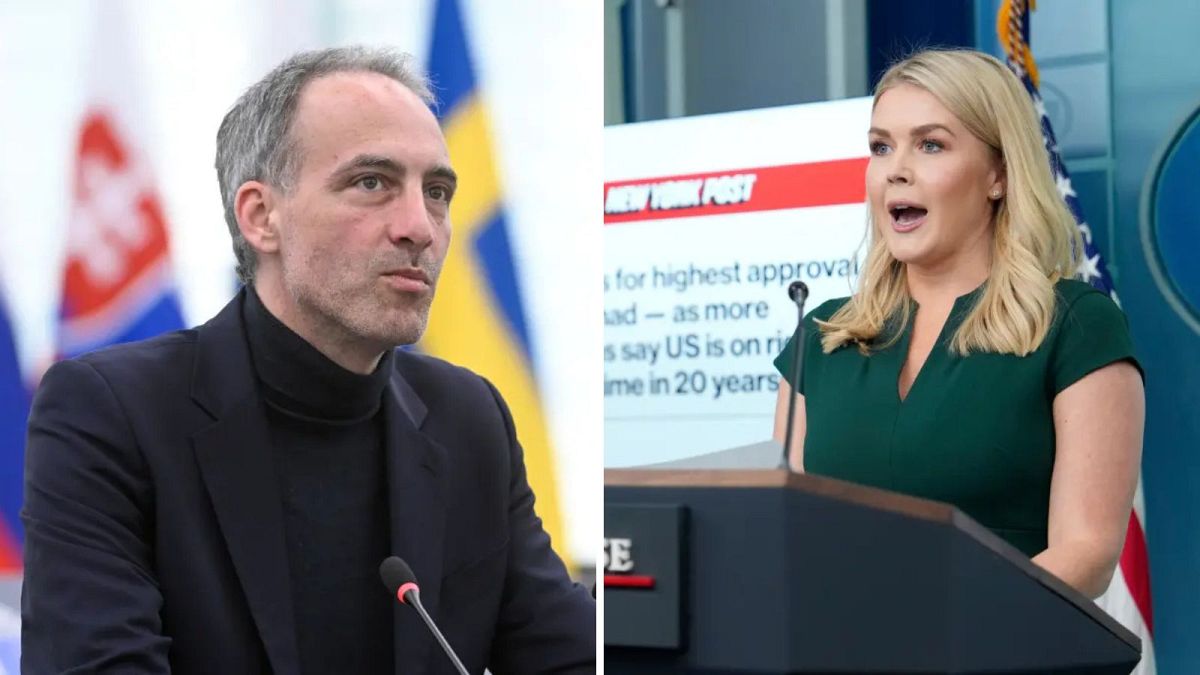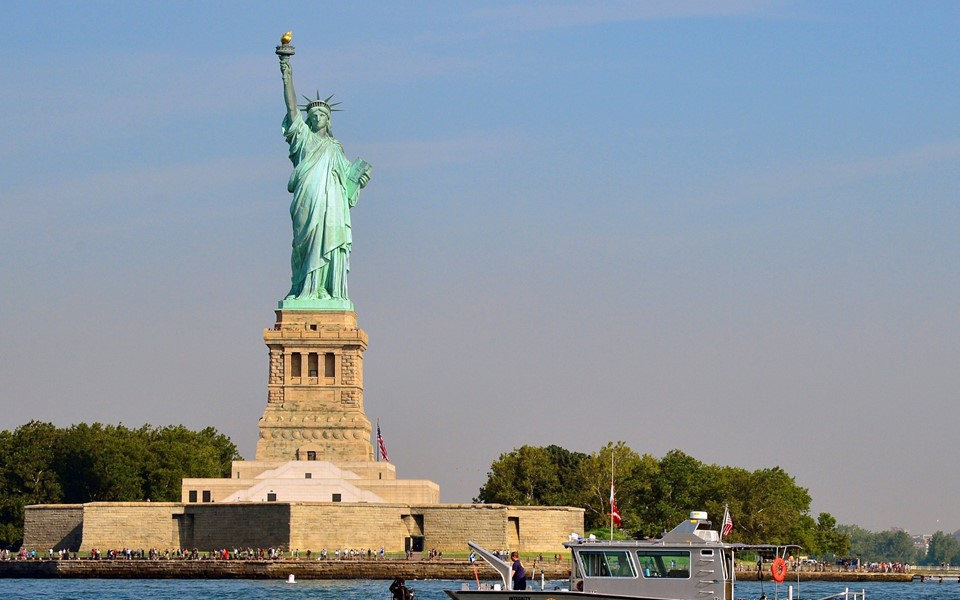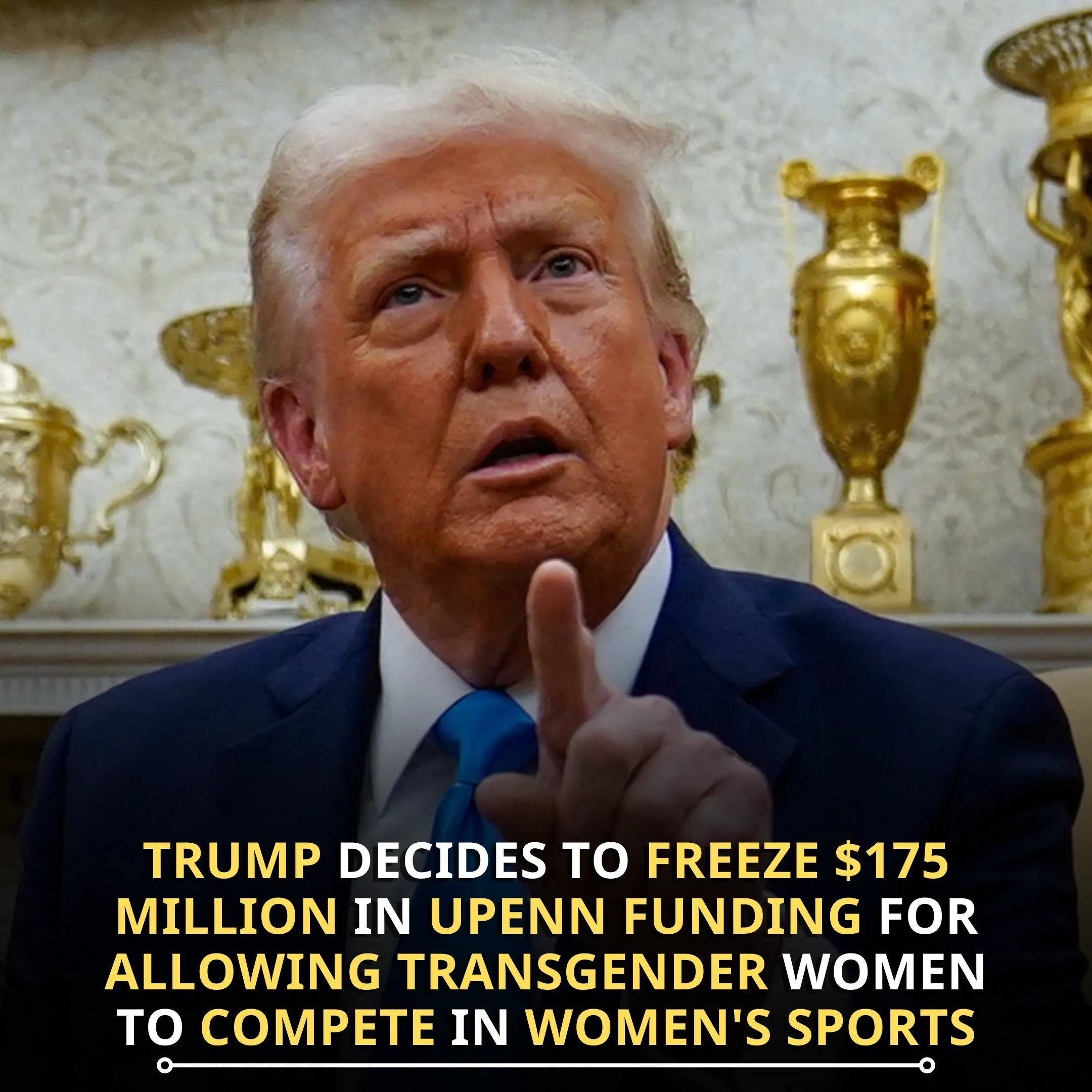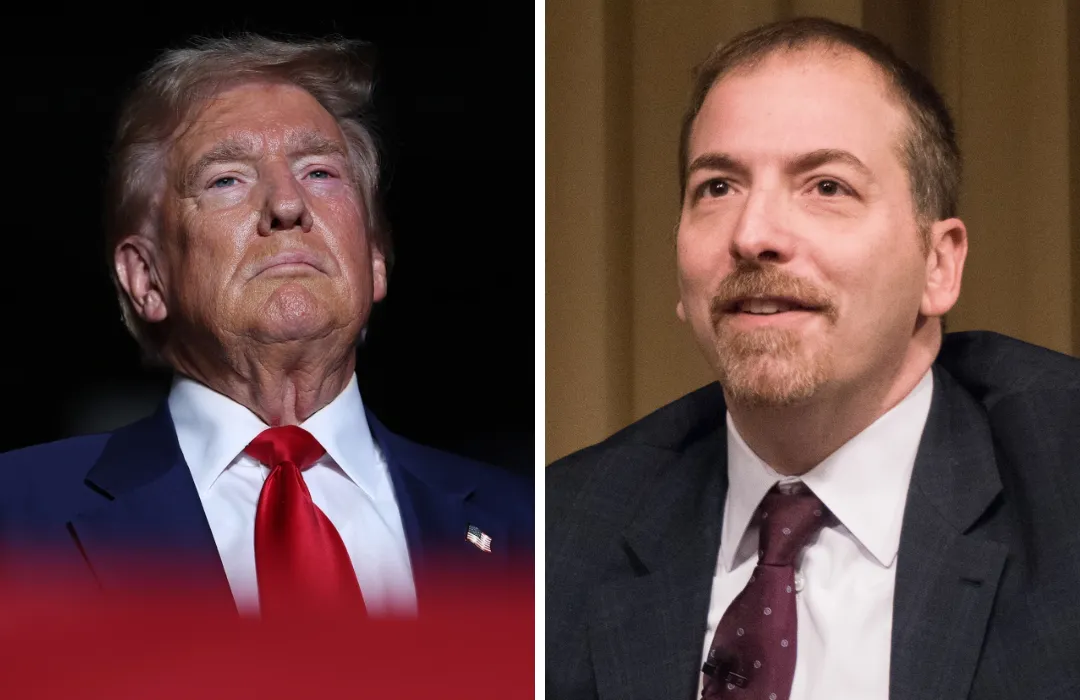
Raphaël Glucksmann, a prominent French politician from the center-left, made headlines this week after he accused the Trump administration of abandoning the values represented by the Statue of Liberty. His comments came after White House press secretary Karoline Leavitt dismissed him as a “low-level” lawmaker, responding to Glucksmann's call for the iconic statue to be returned to France.
The controversy highlights a clash between the French politician and the U.S. administration, as well as the broader disagreements over the direction of U.S. leadership under President Trump.
Glucksmann, a vocal supporter of Ukraine and an outspoken critic of Trump’s policies, took to social media to respond to Leavitt’s dismissive remarks. In a thread posted on the social platform X, Glucksmann directly addressed the American public, urging them to reflect on the deeper historical bond between the two nations and the Statue of Liberty’s symbolic meaning.
“Dear Americans, Since the White House press secretary is attacking me today, I wanted to tell you this,” Glucksmann began his post. He went on to explain that the relationship between the United States and France is not just one of diplomacy or trade, but one deeply rooted in shared values and history.
“Our two people are intimately linked by History, the blood we shed, and the passion for freedom we share, a passion symbolized by this Statue that was offered to the United States by France to honor your glorious Revolution,” he said, referring to the Statue of Liberty, which was gifted to the United States by France in 1886 to commemorate the nations' shared struggle for freedom and democracy.
The French politician, who has consistently criticized Trump’s domestic and foreign policies, argued that the United States no longer represents the values of liberty, democracy, and justice that the statue once symbolized. “The U.S. no longer represents the values it championed when France gave it the statue,” Glucksmann wrote, suggesting that the United States under Trump has diverged from the ideals that originally united the two countries.

Glucksmann’s call for the statue’s return to France was not a literal demand to remove it, but rather a symbolic gesture to highlight his belief that the current U.S. government no longer lives up to the ideals that the statue embodies. He accused Trump’s administration of undermining democratic principles, pointing to recent actions like the dismantling of federal programs and the administration's controversial mass deportation plans.
“The Statue of Liberty, which has stood as a symbol of hope and freedom for generations, no longer aligns with the actions of your government,” Glucksmann continued. “It’s no longer about the welcome of immigrants, the embrace of diversity, or the fight for equality.”
For Glucksmann, the Statue of Liberty represented the aspirations of a country that fought against tyranny and oppression, ideals that the French politician believes are being undermined by Trump’s policies. He pointed to the contrast between the actions of the U.S. in World War II, when American soldiers fought against fascism and tyranny, and the present-day administration’s approach to authoritarian leaders like Russia’s Vladimir Putin.
Glucksmann’s comments were a direct response to Leavitt’s remarks during a press briefing, where she criticized him for questioning U.S. values and dismissed his concerns. Leavitt argued that Glucksmann and the French people should be “very grateful” to the United States because, she claimed, they were “not speaking German right now,” referencing the role the U.S. played in liberating France during World War II.
The comment was intended to remind Glucksmann of the U.S. military's sacrifices, but it was met with criticism, particularly from Glucksmann himself, who acknowledged the debt France owes to the American soldiers who fought and died on French soil during the war.
“I would simply not be here if hundreds of thousands of young Americans had not landed on our beaches in Normandy,” Glucksmann said, acknowledging the significant role the U.S. played in the liberation of France during World War II. “Our gratitude to these heroes and their sacrifices is therefore eternal.”

However, Glucksmann took issue with the notion that the gratitude owed to American soldiers should be used as a justification for the U.S. government’s current actions. He pointed out that the America that fought against tyrants in the 1940s was not the same America that Trump represents today.
“The America of these heroes fought against tyrants, it did not flatter them,” Glucksmann argued. “It was the enemy of fascism, not the friend of Putin. It helped the resistance and didn’t attack Zelensky.”
Glucksmann further criticized the current administration for its policies that he believes betray the very ideals that the Statue of Liberty stands for. “It celebrated science and didn’t fire researchers for using banned words,” he said, referring to the Trump administration’s controversial stance on science and environmental issues.
“It welcomed the persecuted and didn’t target them.”
In his response, Glucksmann expressed his concern for the future of the U.S. and its role in defending democratic values globally. “Europe is counting on the U.S. to rise again,” he said, urging Americans to take a stand against the direction the Trump administration has taken.
He concluded with a call to action, stating that if the U.S. government no longer stands for the values of freedom and democracy, then Europe would carry the torch.
“No one, of course, will come and steal the Statue of Liberty. The statue is yours. But what it embodies belongs to everyone,” Glucksmann wrote. “And if the free world no longer interests your government, then we will take up the torch, here in Europe.”

Glucksmann’s remarks have sparked a broader conversation about the future of U.S.-European relations, the role of the United States in promoting democracy, and the values that the Statue of Liberty represents. His comments also reflect the growing frustration among some European leaders with Trump’s foreign policy, which has been marked by skepticism of international alliances and a preference for unilateral action.
As Glucksmann’s call for the return of the statue serves as a symbol of protest, it highlights the tensions between the U.S. and its allies over the direction of global leadership.
-1747629091-q80.webp)


-1745744115-q80.webp)